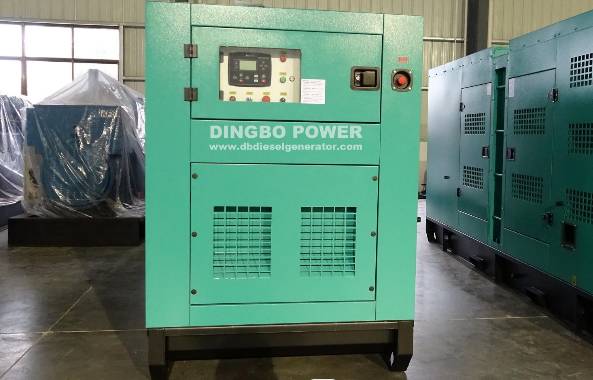Diesel-powered generators are renowned for their high fuel efficiency, durability and low maintenance requirements. They can provide a reliable and constant power supply during long-term power outages. If you need to move the generator from site to site and require plenty energy to power up your appliances, a portable diesel generator is suitable for you. In this article, we’ll cover everything you need to know when opting for a portable diesel generator to make an informed purchasing decision.
What are portable diesel generators?
As the name suggests, these generators are machines that produce electricity by burning diesel fuel and give you the flexibility of easily moving the generator from site to site. Compared to a gasoline generator, a portable diesel generator has a higher level of durability and longer lifespan, which makes it an ideal type of commercial generator. This type of generator comes in different sizes and prices. Typically, portable diesel engine-powered generators serve as an emergency power supply in the event of a power cut or are used in places that don't have access to the power grid. They are perfect for various applications such as emergency power, agriculture, industries, construction sites, etc.

How long can a portable diesel generator run continuously?
As a rule, portable generators are not used as a permanent power source. They are designed to provide emergency power when the power grid fails or is not available, such as outdoor events or during natural disasters. However, portable diesel powered generators can provide you with unparalleled runtime. Unlike gas generators, diesel generators use a fuel storage tank and need refueling. The maximum running time of a portable diesel generator mainly depends on its fuel tank size. During extended outages, make sure the tank of your generator is topped off periodically with enough backup diesel supplies and the generator can continue running. It’s recommended that you shut down the generator every 48-72 hours to check oil levels, so that the machine can run efficiently and properly.
How much does a portable diesel engine generator cost?
When budgeting for a generator, you need to take a few factors in considerations. The cost of a portable diesel engine generator may vary depending on its size and quality. There are a variety of portable diesel generators on the market. They come in different sizes and configurations and the prices also vary. Unlike stationary diesel generators, potable diesel generators don’t need to be stalled and typically have a fixed price. Generally, the upfront cost for a portable diesel generator ranges from $3,000 - $7,000 dependant on quality, and size. In addition to the upfront cost, you also need to consider the operating costs of the generator.
How do I choose the right portable diesel generator?
When buying a generator, it’s important to figure out your wattage needs so that you can choose the right size generator. Therefore, consider what you intend to use the generator for and what you want to power and for how long. For instance, if you want to power up your home with a portable diesel-powered generator during power shortages, make a list of the appliances, such as lights and refrigerators, you need to power and record the wattage of each appliance. Please be noted that some large motor-driven appliances like a refrigerator need a high starting wattage. To calculate your power requirements, add the running watts of all necessary appliances up and also factor the largest starting watts into the calculation. Make sure the generator can handle the surge power of the appliances you need to start up in the event of a power cut.
Additionally, consider whether to invest in a portable diesel generator. If you experience frequent power outages or your construction site doesn’t have access to power grid, it is a good idea to buy a portable diesel engine generator. But if you rarely lose power, buying this type of generator may be overkill.
Most modern generators have the option to add additional features to cater the needs of customers. For example, a standby generator with an automatic transfer switch (ATS) enables you to monitor the electrical parameters of primary and alternate power sources and automatically switch between electricity coming from your utility and generator power. A portable generator with a carbon monoxide (CO) auto-shutoff feature can automatically shut off the engine before harmful levels of carbon monoxide have the chance to accumulate in your generator's operating area. Thus, consider the feature of the generator you need most when buying a portable genset.
Contact us today to get the right advice
There are various brands and manufacturers of portable diesel generators for sale all over the world. Make sure you choose the right generator that can provide enough power for your needs and meet your specific requirements. Dingbo Power offers a wide range of diesel generators of all sizes and types from reputable brands like Perkins, Cummins, MTU, Deutz, Volvo, Ricardo, Yuchai, etc. If you need assistance selecting the right product for your application, please contact us now.
Comments
Post a Comment